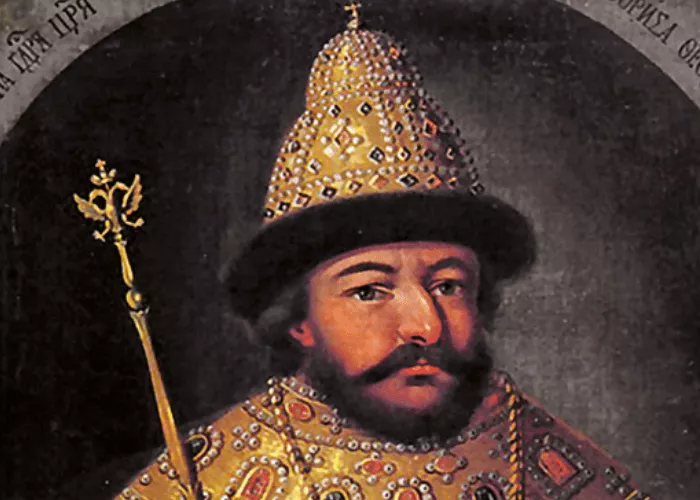Welcome to Poem of the Day – Boris Godunov by Alexander Sergeyevich Pushkin.
Alexander Sergeyevich Pushkin, often hailed as the father of modern Russian literature, crafted an enduring legacy through his poetic brilliance, innovative narratives, and unmatched mastery of the Russian language. Among his diverse works, Boris Godunov stands out as a monumental historical drama, blending the grandeur of Shakespearean tragedy with Pushkin’s sharp political insight. Written in 1825 but published in 1831, this verse drama explores themes of power, legitimacy, and moral responsibility, offering a profound meditation on the complex interplay between personal ambition and historical forces.
Boris Godunov Poem Explanation
Boris Godunov draws heavily from Russian history, specifically the Time of Troubles (1598–1613), a period marked by political chaos and foreign invasions. Boris Godunov, the historical figure and central character of the drama, rose to power under controversial circumstances following the death of Tsar Feodor I, the last Rurikid ruler. Pushkin’s portrayal of Boris reflects the ambiguities surrounding his reign, including suspicions of his involvement in the murder of the young Dmitry, Ivan the Terrible’s son and a potential heir to the throne.
Pushkin’s decision to frame the narrative within this historical setting reflects his deep engagement with questions of authority and nationhood, issues that resonated with his contemporaries during the tumultuous early 19th century.
Structure and Style
Written in blank verse, Boris Godunov mirrors the structural and stylistic conventions of Shakespearean drama while retaining a distinctly Russian sensibility. Pushkin eschews classical unities, allowing the action to unfold across multiple locations and years. This fragmented structure underscores the chaotic and multifaceted nature of historical truth.
The language of the play is both elevated and accessible, blending poetic sophistication with the vernacular speech of its characters. Pushkin’s use of soliloquies and monologues, most notably Boris’s famous reflection on guilt and power, allows for deep psychological exploration, revealing the inner turmoil of a ruler burdened by his past.
Thematic Exploration
Power and Legitimacy
At the heart of Boris Godunov lies a probing inquiry into the nature of power. Boris, though a capable ruler, is haunted by the specter of illegitimacy due to the widely believed rumor that he orchestrated the murder of Dmitry. His reign exemplifies the precariousness of power obtained through morally dubious means. Pushkin delves into the psychological toll of such power, portraying Boris as a tragic figure whose ascent to the throne is both his triumph and his doom.
Guilt and Conscience
Boris’s soliloquies reveal a man tormented by guilt, highlighting the moral dimension of his character. Unlike Shakespeare’s Macbeth, who descends into tyranny, Boris’s guilt humanizes him, making him a deeply sympathetic figure. His inner conflict serves as a poignant reminder of the inextricable link between personal morality and public responsibility.
The Role of the Masses
Pushkin’s portrayal of the Russian populace is strikingly modern. The masses, depicted through choruses and crowd scenes, play a significant role in shaping the political narrative. Their shifting loyalties and susceptibility to manipulation underscore the fragility of political power in the absence of genuine legitimacy.
Fate and Free Will
The drama grapples with the tension between fate and free will, a theme central to the genre of tragedy. While Boris’s rise and fall appear to be dictated by historical forces, Pushkin imbues his actions with a sense of agency, emphasizing the moral choices that define his character.
Comparison with Shakespeare
Pushkin’s admiration for Shakespeare is evident throughout Boris Godunov. Like Shakespeare’s histories and tragedies, Pushkin’s drama transcends the specifics of its historical setting to explore universal themes. However, Pushkin diverges from Shakespeare in his restraint; where Shakespeare often revels in dramatic excess, Pushkin opts for subtlety and psychological realism. This stylistic choice enhances the drama’s philosophical depth, allowing the audience to engage with its themes on a more intellectual level.
Conclusion
Boris Godunov is a testament to Pushkin’s genius as a poet and dramatist. Its intricate portrayal of power, morality, and historical forces offers timeless insights into the human condition, making it a cornerstone of Russian literature. Pushkin’s ability to synthesize historical narrative with poetic imagination elevates the drama to the realm of universal art, ensuring its enduring relevance. As a historical tragedy, Boris Godunov not only reflects the complexities of its time but also serves as a mirror for all societies grappling with the dynamics of power and legitimacy.

